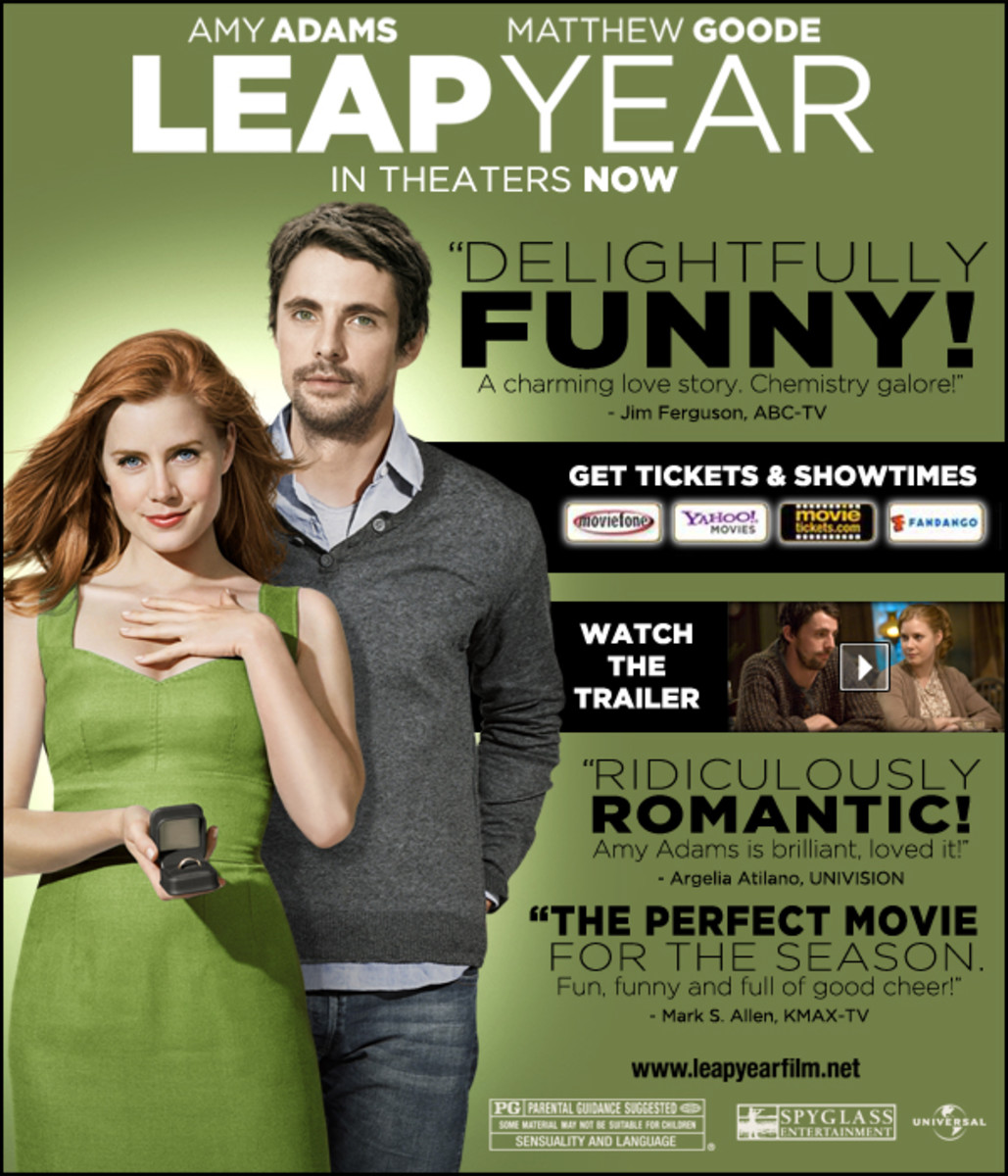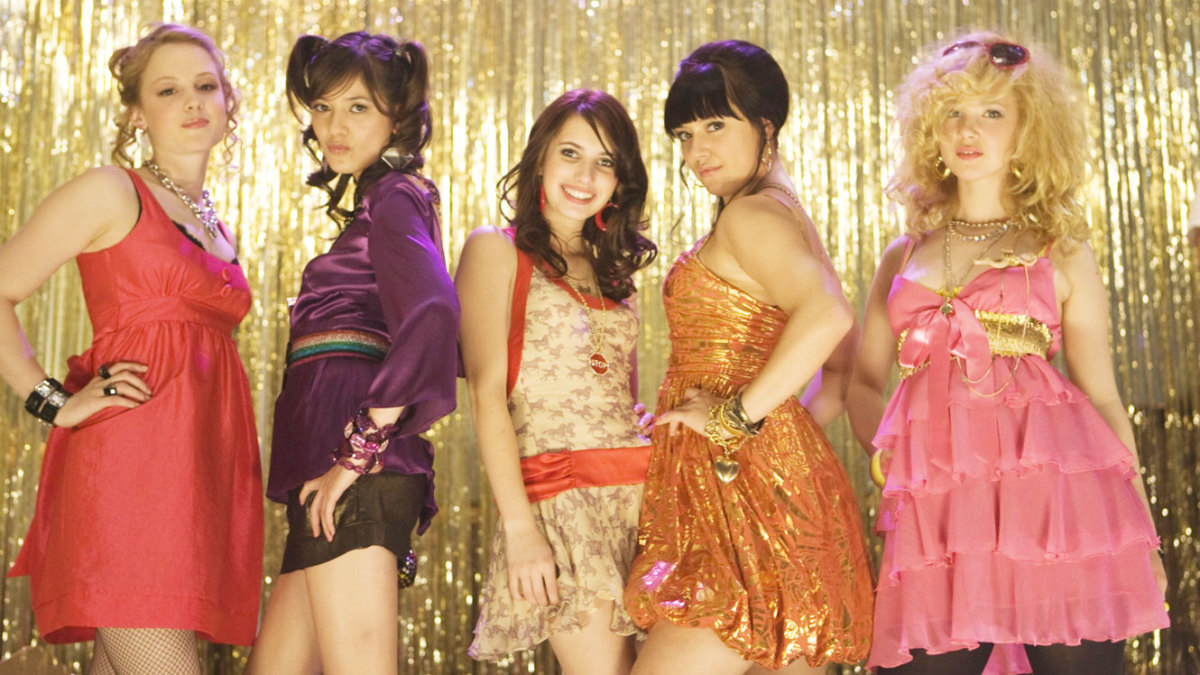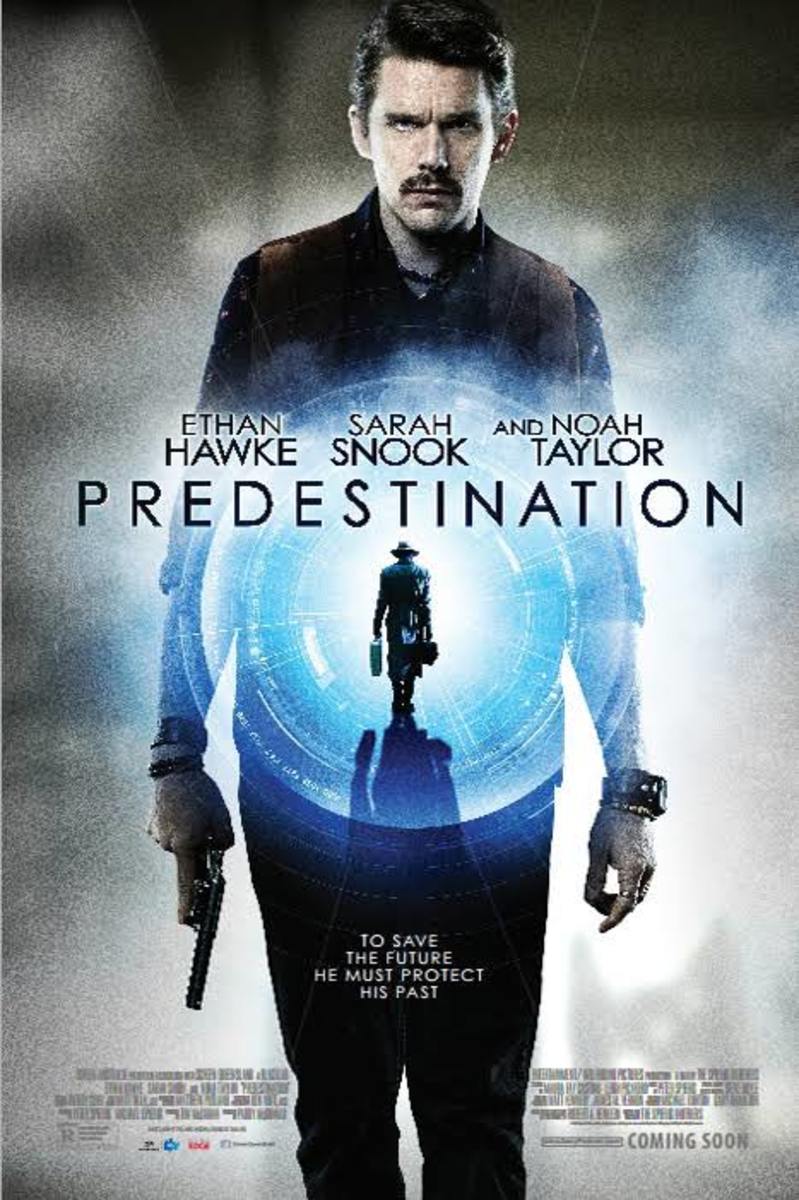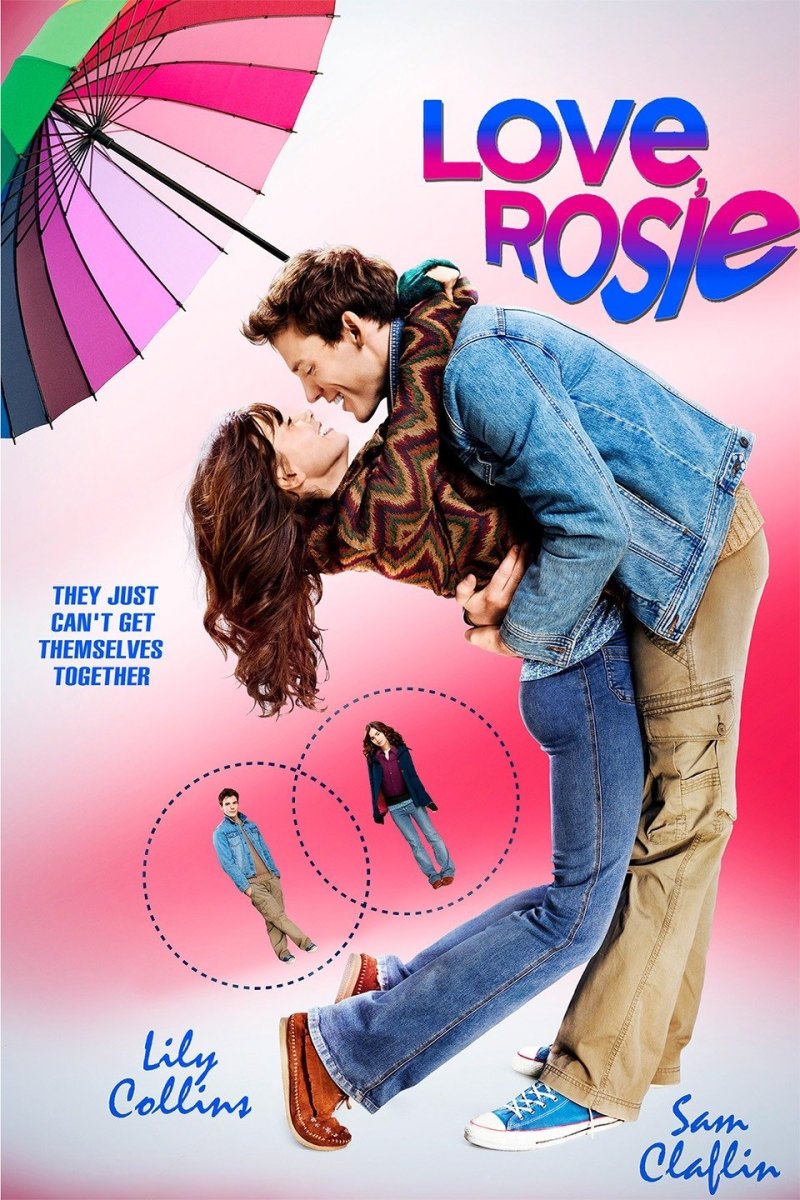Movie Review - Orpheus (1950 – France)

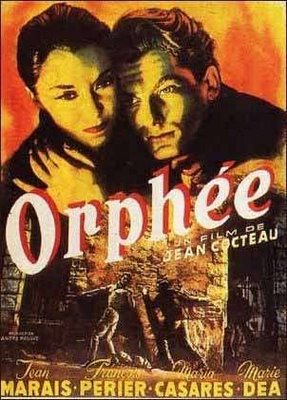
Between 1930 and 1959, Jean Cocteau, the very definition of auteur, wrote, produced and directed a trilogy of movies—The Blood of a Poet, Orpheus , and The Testament Of Orpheus which he grouped together as The Orphic Trilogy.
The first movie in the loosely related group, which is not a trilogy in the usual sense of the word, The Blood of a Poet (1930), is most often described as a surrealist film — although Cocteau wrote of it, "It is often said that The Blood Of A Poet is a surrealist film. However, surrealism did not exist when I first thought of it." However you interpret that typical Cocteauism, part haiku, part self-aggrandizement, and part factual truth, The Blood Of A Poet is more an art project than a movie. It’s not an easy picture to understand or appreciate, and makes for slow bordering on yawn-inducing going, and I say that as a Cocteau fan.
The second film in the trilogy, Orpheus (sometimes titled in the original French as Orphée ), is the most accessible of the three and is the subject of this review.
Watch this beautifuil movie:
The third and final piece in the trilogy, 1959's Testament Of Orpheus , is also the most difficult to either understand, or review; it actually manages to make The Blood of a Poet look tame and traditional, no easy feat. Described by Cocteau as his "farewell film," it's a while-still-alive eulogy to himself in which Cocteau wanders through a heavily symbolic landscape (with cameos by Yul Brynner and — yes, that really is — Pablo Picasso). It, like The Blood of a Poet , eludes the conventions of movie reviews and exists in another plane entirely, one in which you may, or may not, occasionally linger. That space—the realm of poetry, metaphor, symbolism and dreams—is one in which Cocteau felt much more at ease than I, so I will make no attempt to offer a review other than: See it for yourself; it’s interesting, you may enjoy it. Or not.
Jean Marais & Maria Casares in Orpheus
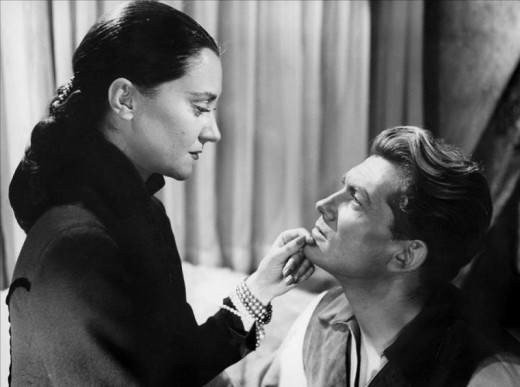
By far the most accessible of Cocteau's Orphic Trilogy , Orpheus is a visual enchantment that also deals with some very serious themes: The role of artists in a fickle society that chews up and spits out creative spirits with a kind of sadistic glee, an artist's fear of the death, not of his body, but of his creative passion and ability; the need of an artist to put the demands of art above everything else in life; and the alleged victory of death (it always reminds me of, “Oh Death, where is thy victory?” Corinthians, 15:54, 55) – like I said, the movie deals with some weighty stuff!
Death (Maria Casares) never looked so good (Orpheus)
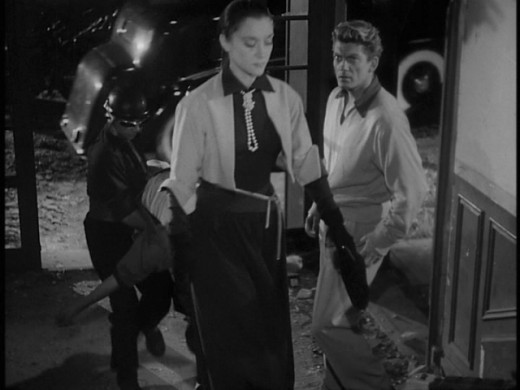
What saves Orpheus from preciousness and pretension is the irrepressible post-WWII buoyancy so evident in every frame. Who would have thought – in 1946 or 47, when Europe was in flames – that only a few years later anyone would be left alive in France capable of making a picture like this one? It really is a miracle. If Post Traumatic Stress is the natural reaction to horror – and the world had just witnessed real horror up close – perhaps artists are immune and respond with an unabashed joie de vivre. You are also watching the birth of the Culture of Youth in this film, a phenomenon that—for better or worse—has dominated our world ever since.
Jean Marais & François Périer in Orpheus
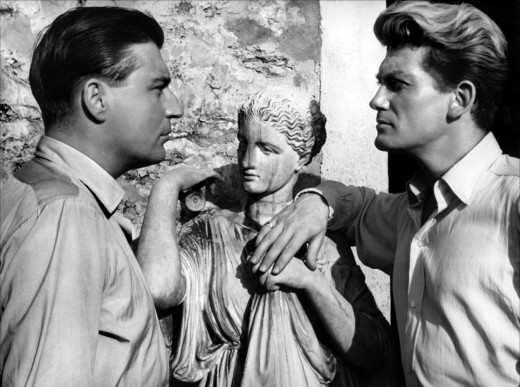
In the film, Orpheus, a hugely successful poet, is scorned as old and irrelevant by the hot, new Beat Generation of intellectuals, even as he is mobbed in the street by autograph-hungry bobbysoxers (the 50's version of happily brain-free pop fandom). There is a wonderful, funny and sweet scene in which Orpheus is chased down the narrow, twisting streets of Paris by lust-crazed teenyboppers (remember, he’s a poet , for god’s sake); it’s one of the best creator’s wish fulfillments in cinematic history.
Jean Marais is suitably handsome and perplexed as Orphée, and as his wife, Eurydice, Marie Déa embodies the much-put-upon loyalty of a mere mortal caught up in the baffling universe of not only art, but also the even more inexplicable afterlife. The movie revolves, however, around the performance of François Périer as Heurtebise, the charming chauffeur who is also an intermediary between this world, and the next. His steady, naturalistic acting style grounds the at times emotionally overwrought drama that swirls around him and gives the film a point of realism to which we can cling.
Through the looking glass.......
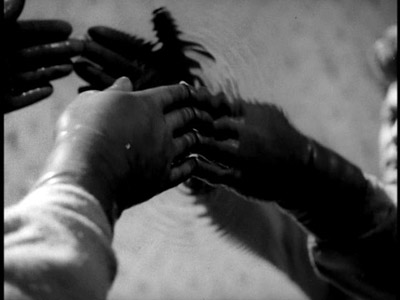
I absolutely adore María Calais in Orpheus , too; her aloof yet vulnerable portrayal of a love struck Death is one of the greatest twists on the classic Femme Fatale ever put on film. If you are familiar with the Greek and Roman variations on the myth of Orpheus, you will have a basic grasp of the story, but the twists Cocteau applies to it unexpected, by turns fun and haunting. The special effects are primitive by today’s standards — they were primitive even by 1950 standards, actually – but the movie was shot on an extraordinarily slender budget and the effects are, well, effective.
Orpheus is a great picture to watch along with Carol Reed's The Third Man — which was shot on location in poignantly bombed-out Vienna in 1949 — to get a sense of what post-war Europe looked and felt like as it tried to wake itself up from the extended nightmare of the war. Or — if you want more of the fun of the era, less of the pathos — put Orpheus in a double feature with 1951's An American in Paris , in which Gene Kelly dances along the Seine as the embodiment of American post-war optimism in a Paris so recently nearly crushed to death beneath Nazi jack boots.
For more Cocteau, I recommend his take on a classic fairy tale, from 1949, the delightful Beauty and the Beast.
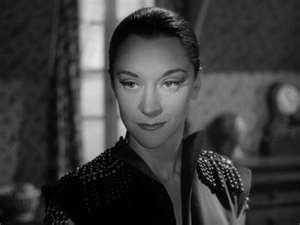
Orpheus is highly recommended but the other two films in the Orphic Trilogy, The Blood of a Poet and Testament of Orpheus, are an acquired taste, one which I, to be honest, have never acquired.
(I am an artist and the author of the Suburban Sprawl series of novels as well as two nonfiction books. Find out more about my work at RobertaLeeArt.com.)
Copyright © Roberta Lee 2012. All rights reserved.
Genre: Art House, International, Science Fiction, Fantasy, Drama
Rating: Unrated
Running Time: 1 hr. 35 min.
Directed By: Jean Cocteau
Written By: Jean Cocteau
In Theaters: Jan 1, 1950 Wide
Cast:
Jean Marais - Orphée
François Périer - Heurtebise
María Casares - The Princess - Death
Marie Déa - Eurydice

![Orpheus (The Criterion Collection) [DVD]](https://m.media-amazon.com/images/I/51WxtrfWQVL._SL160_.jpg)


